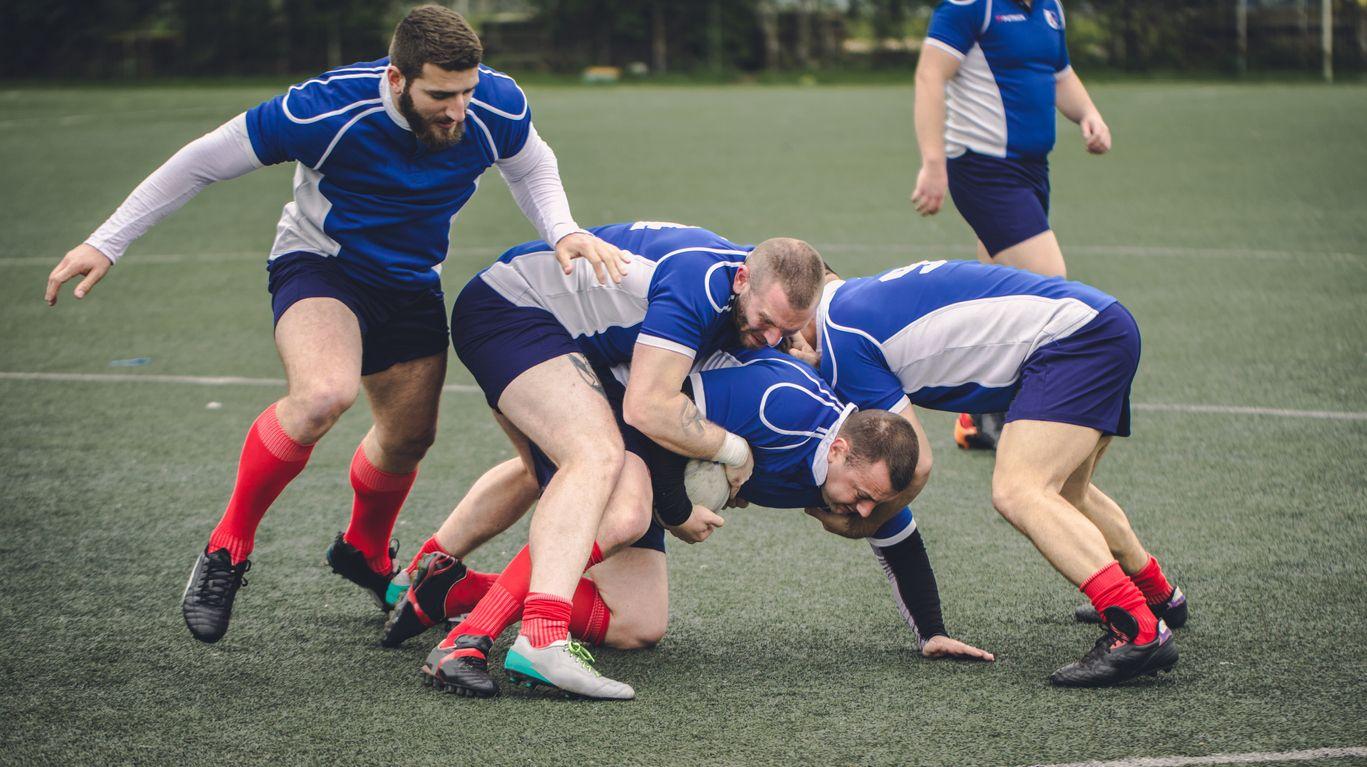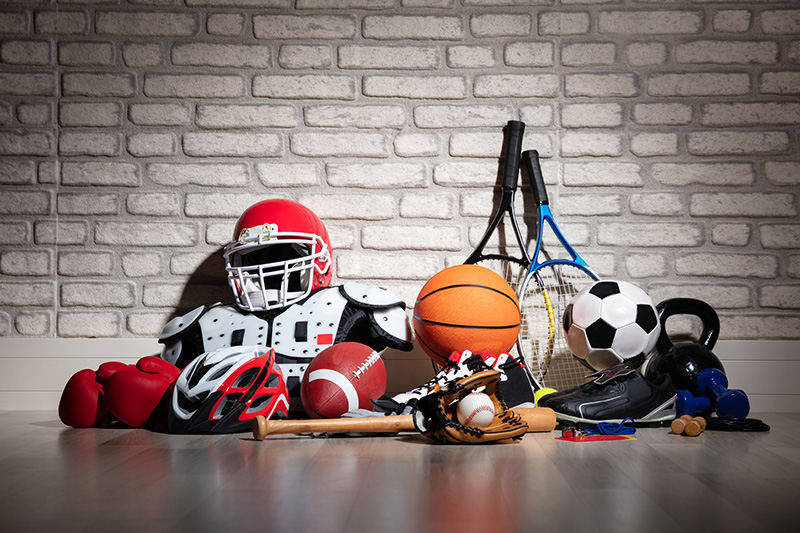Learning objective
- To express sporting preferences using an opinion verb, a second verb and an adjective.
Success criteria
- I can listen for specific details.
- I can apply language detective strategies to work out meaning.
- I can give positive and negative opinions.
- I can justify opinions using adjectives.
National curriculum
Languages
Pupils should be taught to:
- Broaden their vocabulary and develop their ability to understand new words that are introduced into familiar written material, including through using a dictionary.
- Read carefully and show understanding of words, phrases and simple writing.
- Listen attentively to spoken language and show understanding by joining in and responding.
- Understand basic grammar appropriate to the language being studied, including (where relevant): feminine, masculine and neuter forms and the conjugation of high-frequency verbs; key features and patterns of the language; how to apply these, for instance, to build sentences; and how these differ from or are similar to English.
Cross-curricular links
None.
Before the lesson
Check all images, videos, links and presentation slides are suitable for your class.
- Presentation: Verbs for sports.
- Presentation: Sporting opinions.
- Presentation: We love sport!
- Whiteboards and pens (one each).
- Stick the Resource: Who is it? (see Print in advance) around the classroom.
Print in advance of the lesson.
Subject knowledge
Using two verbs in a sentence
In this lesson the children will use opinion verbs in the present tense with the verbs jouer – to play, and faire – to do (depending on the sport). As jouer or faire are the second verb in the sentence, they remain in the infinitive form.
Lesson organisation
The Knowledge organiser provides a visual summary of the key facts and vocabulary for the unit. The children can use it as directed to check keyword meanings or spellings and to help them remember important information when completing an activity.
Find further ideas for using the Knowledge organiser to support adaptive teaching here.
Pupil videos: Phonemes – Mouth Mechanics
These videos show pupils how to pronounce previously taught French phonemes that feature in this lesson. Native speakers model each phoneme sound along with a practical demonstration of the required mouth formation to produce the correct pronunciation.
These videos could be used as an optional extra before, during or after this lesson to support learning.
Lesson plan
1: Recap and recall
Display slide 1 of the Presentation: Verbs for sports and hand out whiteboards and pens (one each).
Ask the class to remind you when the verb jouer – to play, is used with a sport, and when the verb faire – to do, is used. (The verb jouer is used when the sport involves a ball and the verb faire when there is no ball.)
Working in pairs, ask the children to decide whether je joue or je fais is the correct verb for each sport shown. Take feedback then click to reveal the answers.
Optional: Display slide 2 and ask the children to write phrases for each sport using the following structure:
Je joue/fais + au/du/de la + [name of the sport].
Take feedback and click to reveal the answers.
2: Attention grabber
Display slide 1 of the Presentation: We love sport.
In pairs, ask the children to match the opinion verbs with their meanings in English.
Take feedback then click to reveal the answers.
Display slide 2. The class reads and listens to the sentences. Ask the class what they notice about the verbs jouer and faire in these sentences (the verbs stay in their original infinitive form because they come after another verb).
In pairs, ask the class to translate the sentences into English. Take feedback then click to reveal the English translations.
Display slide 3 and explain that the slide shows a mystery sentence about an opinion of a sport. Challenge the class to work out the sentence using just the first letter of each word. Take feedback and click to reveal the answer.
3: Main event
Extracting key information
Display slide 1 of the Presentation: Sporting opinions.
Encourage the class to use their detective skills to work out the meaning of the adjectives and to match them to their English equivalents. Drag and drop the words according to feedback then click to reveal the answers.
Ask volunteers to finish using the sentence starter shown on the slide by adding an adjective, for example:
J’aime jouer au football parce que c’est passionnant – I like to play football because it’s exciting.
Remind the class that a positive adjective should be used with a positive opinion verb, such as j’aime or j’adore.
Display slide 2. The class listens to and reads what these sports people are saying. Working in pairs, ask the children to translate what they heard, then take feedback then click to reveal the translations. Play the audio again for the class to listen and repeat.
Display slide 3 and repeat the above activity.
Hand out the Activity: Who is it? (one each) and the Resource: Knowledge Organiser: French sport and the Olympics (one between two). Keep the Knowledge organiser for the remaining lessons in the unit.
Display slide 4. Explain to the children that their activity sheet has questions about different athletes. To answer the questions, the children need to seek the information around the classroom and write the name of the correct athlete next to each question.
Give the children time to move around the classroom. When appropriate, take feedback and click to reveal the answers.
4: Wrapping up
Guess my sentence
Display the Presentation: Guess my sentence.
Model creating a sentence with an opinion, a sport and an adjective, for example:
J’aime jouer au tennis car c’est amusant – I like to play tennis because it is fun.
Ask the children to each write a sentence on their whiteboard, choosing an opinion, a sport and an adjective. They should not show the sentence to anyone else.
In pairs each child tries to guess the sentence their partner has written, using vocabulary shown on the board. Their partner should say how many elements (out of three) they have guessed correctly. Play continues until one of them guesses their partner’s sentence in full.
5: During the week
Activities
- Use the Pupil videos: Phonemes – Mouth Mechanics accompanying this lesson to practise pronunciation of phonics with the children.
- Answer the register giving an opinion in French about a different sport each day.
- Research famous French sports people and make a collage with their name and the sport they do. Write the sports in French.
Extended-mode explainer videos
How to extend your display to view the lesson page and preseantion mode simultaneously. Choose your operating system below to watch the video
If you need further support with extending your display,
please contact [email protected].
Extended-mode explainer video: For Mac
Extended-mode explainer video: For Windows
Adaptive teaching
Pupils needing extra support
Should use the Knowledge organiser to support with vocabulary and sentence construction; could create simple sentences containing cognates.
Pupils working at greater depth
Could use a range of opinion verbs and adjectives to construct affirmative and negative sentences; could extend their sentences using mais – but, or et – and.
Assessing progress and understanding
Pupils with secure understanding indicated by:
Applying knowledge of familiar language to locate key information in written and spoken passages; understanding and expressing sporting opinions using an opinion verb, jouer or faire in the infinitive form and an appropriate adjective.
Pupils working at greater depth indicated by:
Extracting specific information from written and spoken passages containing familiar and new language; expressing positive and negative sporting opinions using a variety of appropriate adjectives; consistently using the correct verb and preposition for a range of sports.
Vocabulary and translations
-
j'adore
I love
-
j'aime
I like
-
je n'aime pas
I do not like
-
je deteste
I detest
-
je préfère
I prefer
-
jouer
to play
-
faire
to do
-
parce que
because
-
c'est
it is
-
rapide
fast
-
fatigant
tiring
-
amusant
fun
-
compétitif
competitive
-
passionnant
engaging
-
cool
cool
-
technique
technical





